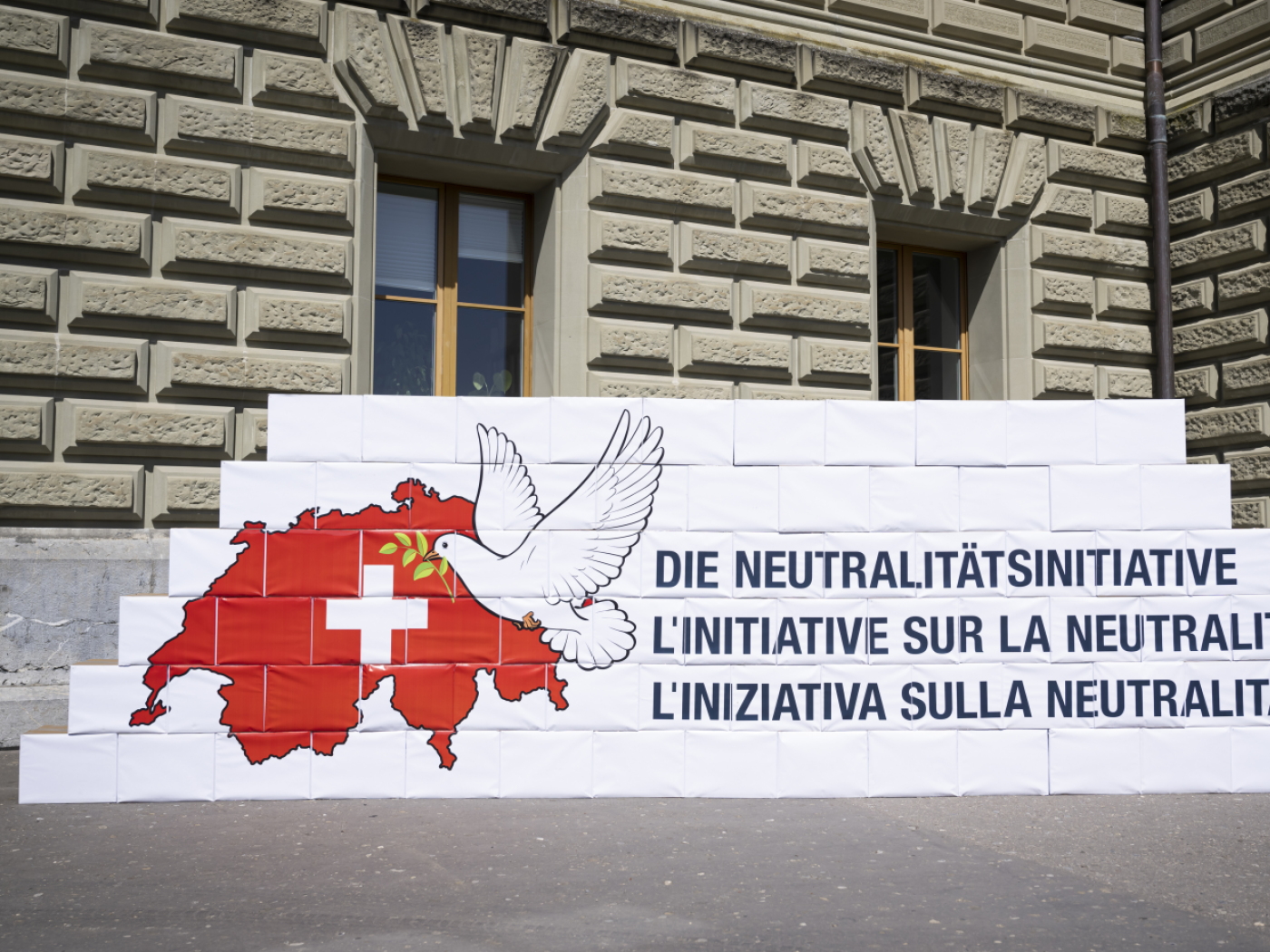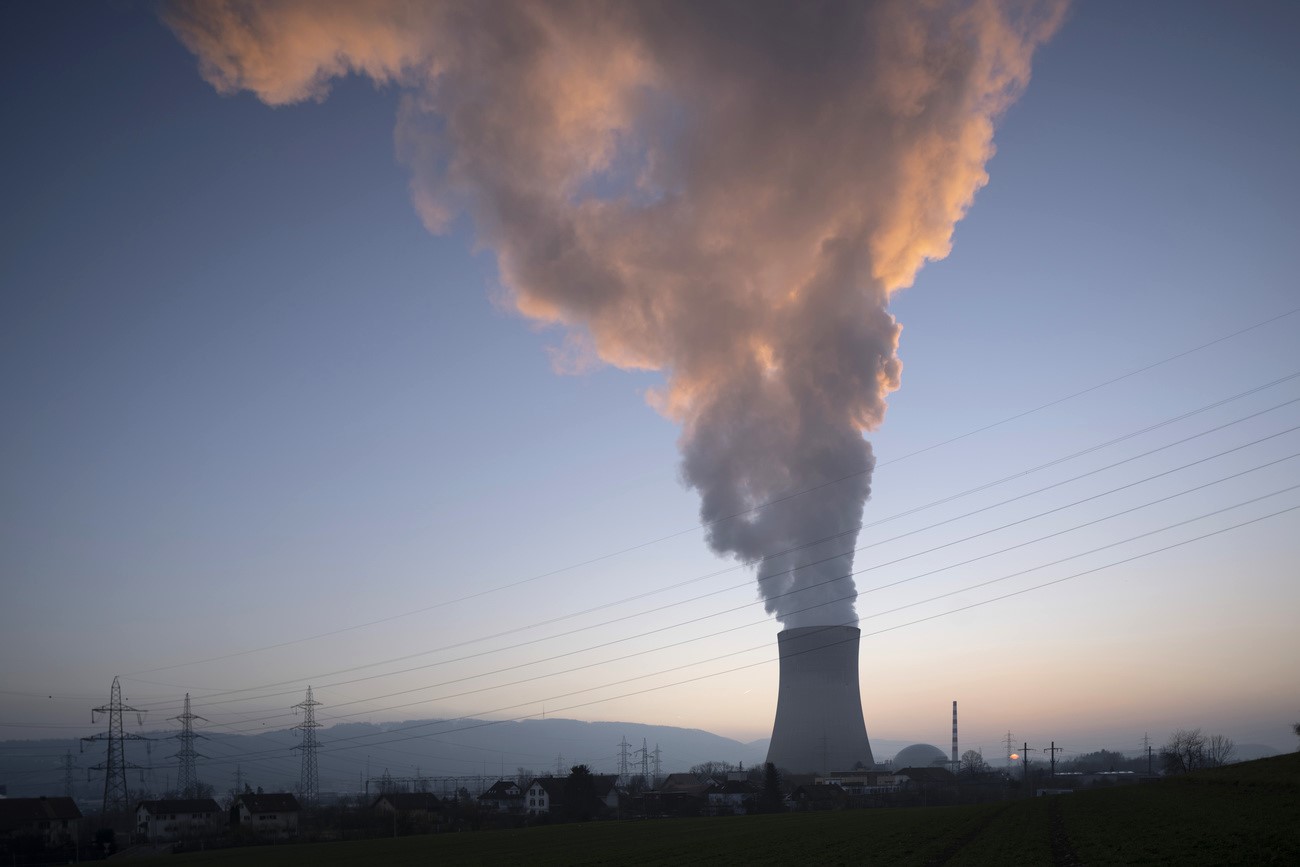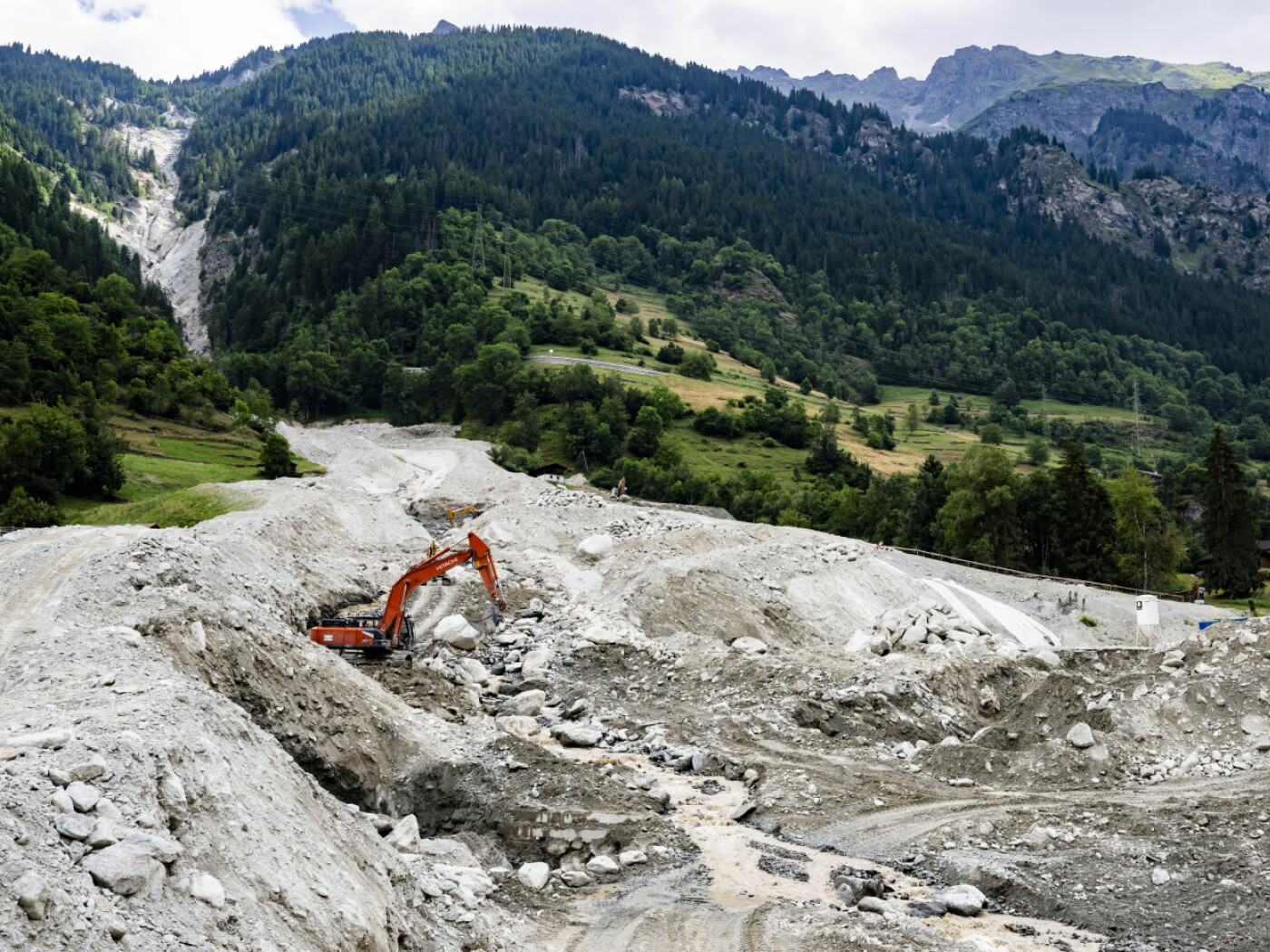
Government estimates for first time Switzerland’s carbon budget up to 2050

The Swiss government predicts that the country will produce around 660 million tonnes of CO2 equivalents for the 2020-2050 period if it meets its climate targets. But scientists and environmental groups say Switzerland’s “carbon budget” is much lower and will soon be exhausted.
+ Get the most important news from Switzerland in your inbox
Last April, the European Court of Human Rights (ECtHR) in Strasbourg condemned Switzerland for its climate inaction in the so-called Klimaseniorinnen case brought by a group of elderly Swiss women that gained global attention.
+ Landmark ruling: Switzerland’s climate policy violates human rights
After analysing the court’s verdict, theExternal link Federal Council’s official response and action report were sent to the Committee of Ministers of the Council of Europe at the end of September, Swiss public radio, RTS, reported on Friday. According to the government, Switzerland is doing enough to reduce its carbon footprint in line with the climate goals it has fixed.
To meet its objectives, Switzerland expects it will need a carbon budget of 660 million tonnes of CO2 equivalents for the period from 2020 to 2050, which represents 0.13% of the global carbon budget. This is the first time that the federal authorities have given such an estimate, RTS said.
+ Swiss climate verdict: why carbon budgets mattered to the judges
A carbon budget is a tool used by climate researchers and policymakers to help determine the framework and direction of climate policy. It often refers to the total amount of CO2 that can still be emitted by human activities while limiting global warming to a specified level (e.g., 1.5°C or 2°C above pre-industrial levels). The total is then divided among countries according to “fair shares” and other criteria.
Switzerland has committed to halve CO2 emissions by 2030External link and ultimately eliminate emissions by 2050External link. The Alpine nation had previously argued that there were no uniform, internationally-recognised guidelines for country-specific carbon budgets.
‘Very optimistic’
Sonia Seneviratne, professor at the federal technology institute ETH Zurich, welcomed Switzerland’s latest approach but said the numbers were very optimistic at first glance.
The problem is that the global carbon budget has already decreased significantly since 2020, said Seneviratne. “There is a study that shows that the total budget that remains now in 2024 represents less than half of what we had in 2020. This was not taken into account at first glance,” she told RTS.
+ ECHR ruling: research group highlights Swiss climate shortcomings
A study conducted at ETH Zurich, which has not yet been published, gives much lower figures than those of the government. Switzerland’s remaining carbon budget would amount to 280 million tonnes of CO2 equivalents for the next 30 years, it estimates. Switzerland would therefore not be able to use up as much CO2 as planned by the Federal Council. The budget would even soon be exhausted.
Greenpeace and the Klimaseniorinnen, who filed the complaint with the European Court of Human Rights, find it difficult to understand how the Federal Council can conclude that Switzerland already meets its requirements in terms of climate policy.
On October 9 Greenpeace said Switzerland’s newly unveiled national action report was “woefully inadequate” to remedy violations found in the landmark ruling in the KlimaSeniorinnen case.
“Swiss climate policies allow Switzerland, a small country that already emits disproportionately high levels of greenhouse gases in relation to its population size, to pollute far more than it should, avoiding its responsibility to current and future generations,” said Louise Fournier, legal counsel at Greenpeace International.
+ Swiss government rebuffs ECHR climate ruling: next stop Strasbourg
The environmental group argues that the Swiss government deliberately disregards the science and the human rights impacts of its climate policies.
“Switzerland’s action report merely reiterates pre-existing climate plans, criticising the ECtHR judgement while presenting a CO2 budget that reflects allowable emissions under its current trajectory without addressing whether these levels are compatible with the 1.5°C limit. In refusing to adapt its climate policies to comply with the European Court of Human Rights’ ruling, Switzerland knowingly infringes on people’s human rights and is shaping its climate policy at the expense of present and future generations,” said the campaign group.
Greenpeace has urged the Committee of Ministers of the Council of Europe to ensure that Switzerland takes the judgement of the highest European human rights court seriously and enacts a plan that actually reduces greenhouse gas emissions based on the best available science.
Translated from French by DeepL/sb
This news story has been written and carefully fact-checked by an external editorial team. At SWI swissinfo.ch we select the most relevant news for an international audience and use automatic translation tools such as DeepL to translate it into English. Providing you with automatically translated news gives us the time to write more in-depth articles.
If you want to know more about how we work, have a look here, if you want to learn more about how we use technology, click here, and if you have feedback on this news story please write to english@swissinfo.ch.

In compliance with the JTI standards
More: SWI swissinfo.ch certified by the Journalism Trust Initiative












































You can find an overview of ongoing debates with our journalists here . Please join us!
If you want to start a conversation about a topic raised in this article or want to report factual errors, email us at english@swissinfo.ch.